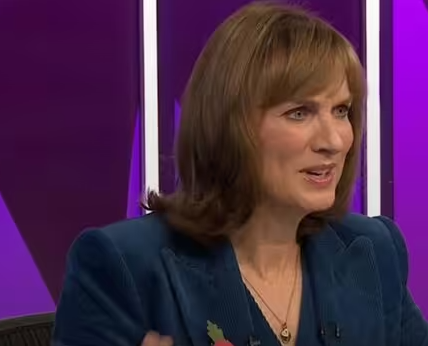EXCLUSIVE: Traffic on Britain’s roads is set rob the Treasury of many billions in the coming years, an expert has suggested.

The Chancellor has been told to focus investment on roads. (Image: Getty/PA)
Rachel Reeves has been told to change tack and avoid road chaos as congestion is predicted to cost the UK economy more than £300billion by 2030. Analysis by forecasting firm Cebr for FairFuelUK, an organisation founded by motoring campaigner Howard Cox, estimated in 2017 that the total cost of road congestion was set to reach £307billion by 2030.
Mr Cox said he believes a forecast made today could be even higher, adding: “Roads are the most vital part of the UK’s transport system, and despite decades of anti-driver initiatives and cancelled road builds, long-term trends show that road usage has significantly increased over time.”
The Government says 336.2billion vehicle miles were driven on Great Britain’s roads in 2024, an increase of 1.6% compared to 2023. Traffic in 2024 was 0.7% lower when compared to 2019 pre-pandemic levels. Data suggests that vehicle miles saw year-on-year growth in each year between 2014 and 2019, before sharply declining as COVID-19 hit the country. Mr Cox added that there has been “years of underfunded road development”, which means “congestion has become extremely costly to the UK economy – delays cause drivers to lose time and waste fuel, while also increasing the cost of doing business”.

Howard Cox ran for London Mayor last year. (Image: Getty)
The campaigner called for more investment in new congestion-free roads, bypasses, and repairs to Britain’s “dilapidated, third-world roads”, saying it is “a clear fiscal choice”.
He added: “Significant road investment offers better value for money – returning an average benefit of £4.50 per pound spent, compared to £2.83 for rail.
“Rail investment is nearly nine times that of road per mile.
“Well-targeted road projects reduce congestion; for example, if the same investment allocated to HS2 had been invested in roads, based on historic averages, it could have widened over 1,900 miles of motorway—covering every motorway in England.”
The campaigner said the UK needs a Chancellor who “recognises roads and road users are central to increasing economic growth, instead of pandering to the ideological belief that buses, trains, and trams are the panacea”.
He added: “We must have new road infrastructure projects and the restoration of shelved plans… otherwise our economy will stagnate indefinitely.”

An A303 bypass was cancelled by the Government last year (Image: Jonathan Buckmaster)
The UK’s ‘most congested’ places
The RAC says that London experiences the majority of the UK’s worst traffic delays.
On the city’s most congested route – the westbound A40 between the North Circular and the A406 – motorists face an additional 17-minute delay during the 5pm peak hour, experts say.
This results in a total of 68 hours spent in traffic over the course of a year.
In January 2025, ongoing roadworks at the Wisely Bypass on the M25 and M3 further exacerbated delays, placing this corridor third in the UK for traffic congestion.
In Bristol, the second most congested city in the UK, the busiest route is the eastbound A420, stretching from the Lawrence Hill Roundabout to Hollow Road.
At 4pm on weekdays, the RAC says, drivers lose around five minutes per day, adding up to 21 hours every year.
Meanwhile, in Leeds, the busiest roads were the A650 southbound, the A657/Leeds Road westbound, and the A65/New Road southbound.
The shadow transport secretary, Richard Holden, told the Express earlier this month that Labour is coming up with “all sorts of excuses” after the A303 bypass was cancelled in July last year.
The cost for its preparatory work was predicted to have risen to £179.2million by December 2024.
Ms Reeves also axed the planned A27 Arundel Bypass.
